|
“There is something special about the languages we learn early in life”, research indicates.
Worldwide over 7,000 languages are spoken. While linguistic diversity is valued by many countries in the world, 40% of these languages are endangered. International Mother Language Day is celebrated on February 21st each year in an effort to shine a spotlight on the beauty and power of linguistic diversity and multilingualism. Last year this article was shared and greatly loved. This year, I'm adding to it to include one additional support.
Multilingual learners count on us to provide high-quality, comprehensible, and culturally responsive instruction in each lesson in every classroom. Here are 23 practical and efficient ways (in no particular order) we can support multilingual learners as they climb to become our future global leaders. *The terms multilingual, emergent bilingual, and English learner are used interchangeably in this article and also include the acronyms MLs, EBs, and ELs.
This brief post lists 13 instructional practices that reduce the love and motivation for reading in students and then 13 ways to inspire and motivate them.
In contrast, here are 13 ways to help students find love, joy, and excitement in reading. On May 11, I had the honor to sit in a virtual room with THE Regie Routman about teaching readers NOT teaching reading. Yes, we carefully thought that out because we both believe the center of instruction should be around children always. I'm delighted to share this conversation with you.
Teaching multilingual children is a gift. It’s truly a joy. In my own classroom, I learned so much from my students, especially those that spoke more than one language.
Over the years, one thing I learned from experience as well as through professional learning is that each student deserves to be seen and served individually. No one size fits all approach works. While differentiation may seem daunting, it’s actually not that scary. Dr. Stephen Fleenor describes differentiation as “not creating individualized lessons...it is creating environments in which students at all different levels, all different proficiencies...can each thrive and each grow one level up in that lesson”. Dr. Fleenor offers two wise suggestions for creating of environments that offer differentiation: The first thing we do with students can set the tone for our time together. Starting the period off on the right foot is critical to a successful lesson. Read on to discover five ways to start your class period in engaging and welcoming ways whether you are a general education teacher or an ESL teacher that pulls students out.
The first few days of school lay the groundwork. They help to create a foundation and atmosphere for the rest of the year. Here are a few of my favorite ways to start the year off with students. You can adjust these to meet your students’ age level, but mostly they can be accommodated to fit K-12.
I picked these activities because they keep ELs at the heart by building community, encouraging interaction, lowering the affective filter, and they can be used later in the year for more academic lessons. It is about relationshipsFor years teachers have been told that the first day of school is all about setting boundaries, being firm, and even "mean" to students. I say we take this bad advice and dump it!!
Day ONE is not about rules, it's all about building relationships. 18 ways to Support English Learners in your classroom in 2018 (or EVER!)2018 is going to be a year where your English Learners thrive! Your ELs need some extra scaffolds and supports to level the playing field. They are learning a new language while navigating content at the same time.
Here are 18 ways that you can help support them with their journey. Not every EL will need all of these scaffolds. Some will need more than others. And once they no longer need the scaffold, remember to release it and let them soar! Let's back up a little and break it down. What is culture? Culture has many meanings and it depends on who you ask or which source you use. If you review most definitions, they all have somethings in common. Zion and Kozleski describe culture as the "shared beliefs, views, values, customs, behaviors and artifacts that the members of society use to interact with their world and with one another (as cited in Fenner & Snyder, 2017).
From this definition, I know we can gather that everyone has a culture. We all have beliefs and views. We all carry values and customs. We all have certain behaviors and artifacts related to our own society that we use to interact with the world and with others. This leads me to the conclusion that being culturally responsive is not only going to benefit my English Learners, it will benefit every child in my classroom. Create a Welcoming Environment
1. The BEST ESL teachers know how to make their students feel safe and valued. They are able to break down the walls of anxiety and fear so students feel ready and eager to learn. These teachers do this by using verbal and nonverbal cues. The way they speak with their students tells them that they are wanted, valued, and loved. These teachers make room for all students. I can't count on my fingers how many times someone has come up to me and asked me a question in Spanish. Then when I respond in English with... "I don't speak Spanish," I'm met with a puzzled and unpleasant look. A look that says, why don't you speak Spanish? You are clearly Hispanic.
Well, no...I'm not. People frequently ASSUME that I am Latina based on what they see and probably from my last name as well. Making assumptions about people is a dangerous thing. The only way to avoid or correct a misconception is to get to know people, ask questions, build relationships. Without this knowledge, we tend to make up our own stories about one another. Making assumptions about our students and their families is even more dangerous. When I was a kid, my parents rarely went to our school for conferences or other events. Chances are you probably have kids in your class with similar situations. Their parents are not coming to school functions. Why? I can only hope that the teachers didn't "assume" my parents didn't care. My parents, in reality, cared VERY much about my education. They actually cared so greatly that they left everything behind to move us to America so we could have a better education and future. If my teachers asked, they would have known that my dad worked a great deal of overtime so we could afford our little home. If my teachers asked, they would have known that my mom was still struggling to learn English, had an infant to care for, and didn't have an extra vehicle to drive. If my teachers asked, they would have known that my parents worked with me every night, instilled in me that school was of utmost importance, and read to me before bed each night. If my teachers asked... I will never forget my first few years as a young teacher. I taught in a wonderful school that was filled with great families and amazing teachers. There was just this one teacher who often said things about her students that didn't sit well with me. One day she came into where we were eating lunch as a team and she said with great unhappiness, "Well, I'm getting a new student. And the kids are hiding all their things because the new kid is Mexican." I was shocked and saddened. She didn't stand up for the new student who hadn't even stepped foot in her room yet. The poor child was already labeled and no one had even met him yet. Why? I have never been able to forget this. At the time, I was a baby teacher and she was a seasoned veteran. I didn't stand up for the child. Now, I would tell my young self to speak up and be an advocate for the student. This veteran teacher made terrible assumptions about an innocent child and allowed her assumptions to sway the thoughts of her other 20 students. What a shame. A terrible shame. Never assume that our students have experiences that we have. Even things we may think are basic and simple such as visiting a zoo. Don't assume all your kids have been to a zoo. Case in point...my niece was well into her teenage years before visiting a zoo. And sadly I didn't realize it until then either. I assumed she had been. When asking your class about experiences, think carefully about how you phrase the question. For example, don't say, "Who has never been to the circus?" It creates a singling out effect. It may embarrasses students who haven't had the experience. Also don't ask, "Does everyone understand?" It is rare that students who don't understand will actually answer by saying, "No". Instead ask specific, clarifying questions. We make assumptions at times. It's really human nature. The important thing to remember is that when it comes to our students, the better we are at getting to know them by asking them questions and being genuine, the better we will be at serving them the way they need it. When we understand who they are, where they come from and what their lives are like, we will be able to reach them in a way that is powerful. Connecting by building meaningful relationships allows our students to feel important, valued, and part of their own growth in education.  Nearly four decades ago, my parents were young newlyweds in a poor, economically unstable country in Southeastern Europe. They made a very difficult decision to leave almost everything behind and come to America. And they did it for the hope of a better future for their two kids. They left the former Yugoslavia with one suitcase and less than $200 in their pockets. But the dreams they had for us were worth it. They risked everything because they knew what staying there would lead to, and they heard about the promises of America. It wasn’t easy when we first arrived in the states. We didn’t quite fit it. There were the obvious differences like language, clothes and food. Aside from language and clothes, we also smelled different from everyone else. My aunt (who came to America a few years before we did) came when she was in high school. She remembers being called the stinky girl. You see, cabbage is a staple in lower socioeconomic Serbian homes, so I imagine she smelled like cabbage and didn’t realize it. It was normal to her. But she was teased a lot for it back then. I'm sure it was hard for her self confidence. When she was in Yugoslavia, she was a very liked and well respected girl. The change was a shock for a teenage girl. My family spoke no English at all when we got here. None of us, not one. My dad actually learned Spanish before he learned English. His coworkers were mainly Spanish speakers so he started to pick it up pretty quickly. Now some of the words he learned were not appropriate for daily conversation. None the less, he learned Spanish. When my brother and I began elementary school, my parents learned English alongside us. We brought home our spelling list and they learned the words too. It was a game we played. My dad worked so hard to make sure we had a house to live in and food and clothing. He wasn’t home much because he was working and picking up overtime as often as he could, and my mother didn’t drive or speak English. I don’t remember either of them going to a parent teacher conference. I wonder if the teachers thought my parents didn’t care. When on the contrary…they cared A LOT. That’s why we left our home country and everything we knew and loved. Below there's a class picture of me in kindergarten. Look at my little hand knit vest… We wanted desperately to fit in and to be like everyone else. To be accepted. After some time, my family met a Serbian woman who was married to a doctor here in the Houston area. They were well off and coincidentally had 3 kids who were all just a little older than we were. This family donated clothes to us. I can’t tell you how excited we would get when they brought over bags of clothes for us. It was like Christmas X 10! After that, we went to school in Polo and Esprit but they were all hand my downs…donations. People make assumptions all the time. We all do. It’s pretty natural. We were still the same poor family, but on the outside, it may have looked like we had some money or that we spent all our money on clothes. I wonder what people used to think! Anyhow, as a student in elementary school, I was very quiet. I could sit and listen all day without saying a single word. After all, my parents told me to "Be a good girl" and that meant no talking in school. In our culture, the teacher holds all the knowledge. Students are there to learn from the teacher. So I took it all in and unless the teacher explicitly spoke to me, I could go the entire day without speaking in English. Then I would go home and tell my mom everything I learned. Only I would tell her in Serbian. My academic English did not advance as well or as quickly as it possibly could have. Being different is hard for children. Especially those who come here with one culture and then are faced with learning a new culture. Essentially, they have 3 cultures. Their first, the new one and a combination of the two. Here’s the thing…my story is not the only one. It’s one of MANY. This story is happening every day. The ELL population continues to grow in Texas and in the United States. Families from around the world are risking everything, leaving everything because they want a better future for their kids. It’s important to share our stories with one another. It helps us connect and understand each other. And in the absence of knowledge people make up their own stories. |
Categories
All
|
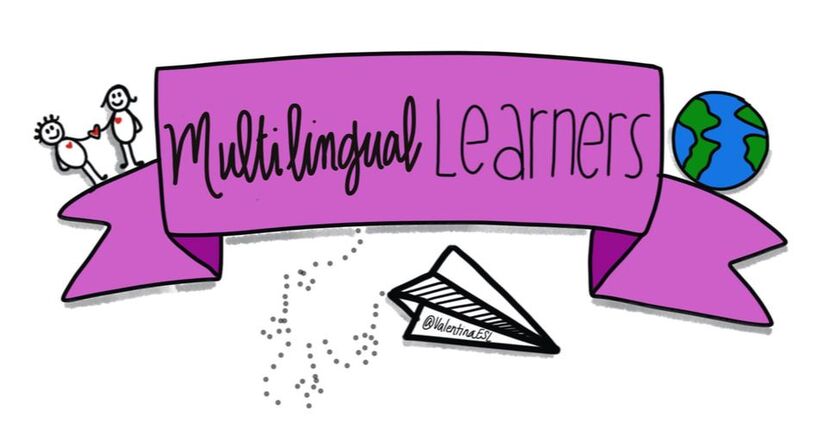
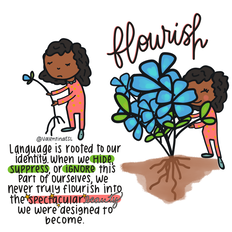
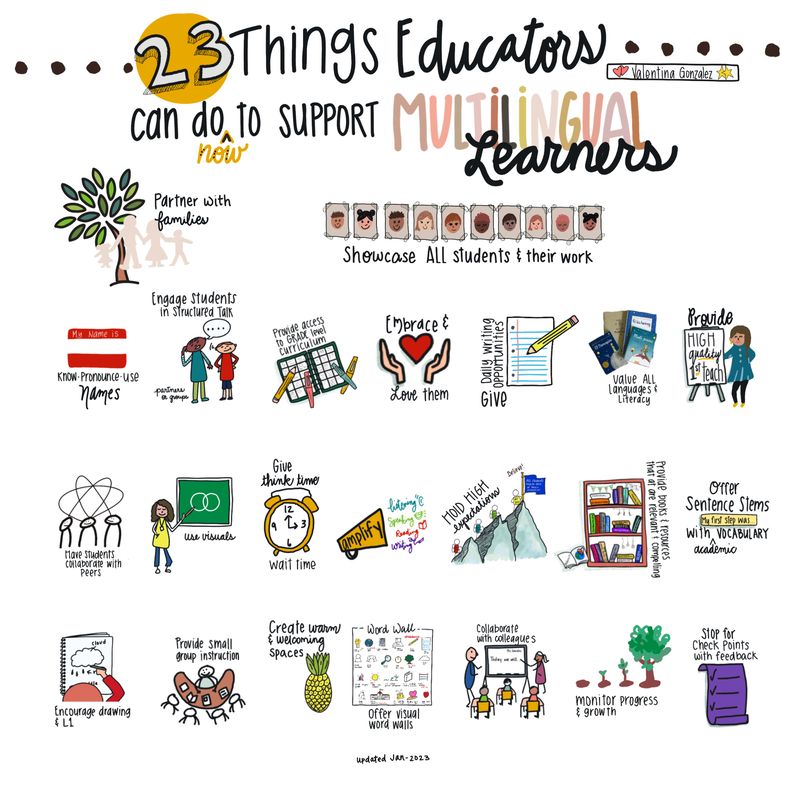
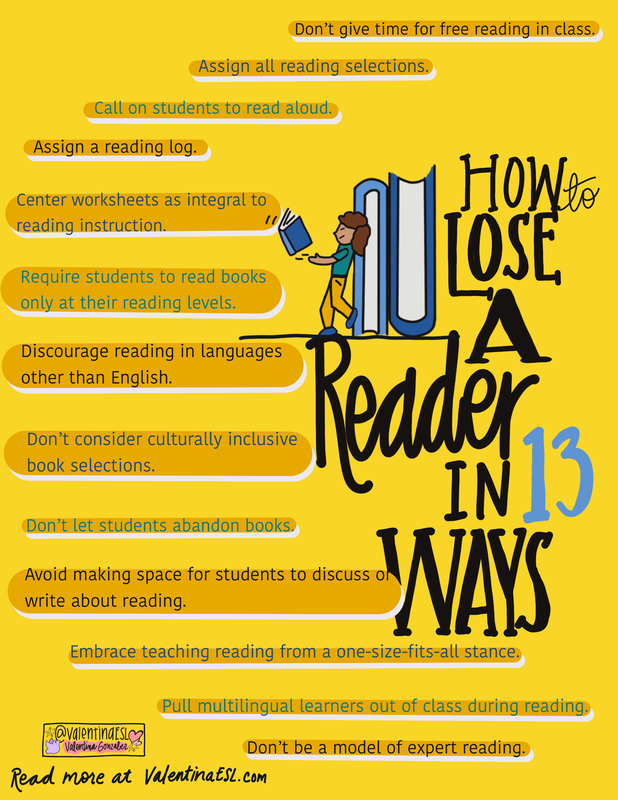
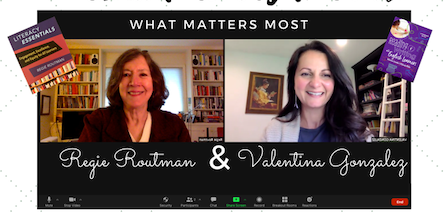
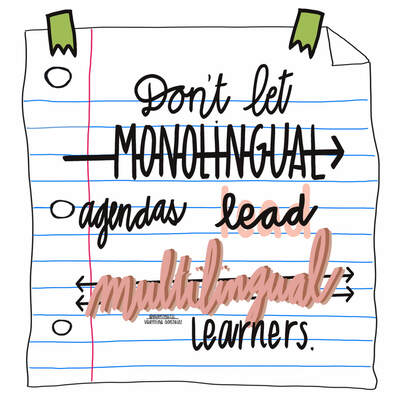
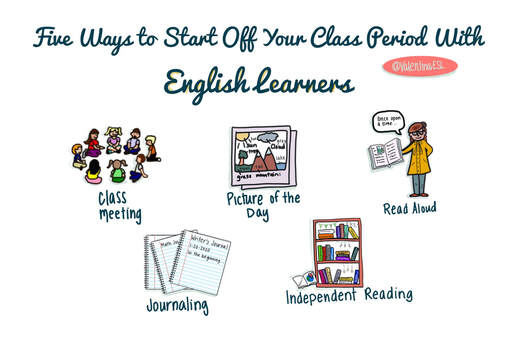
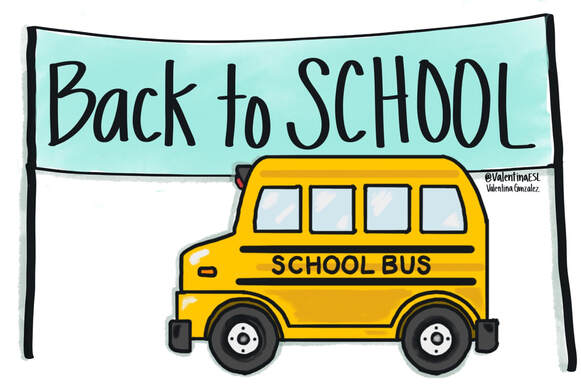
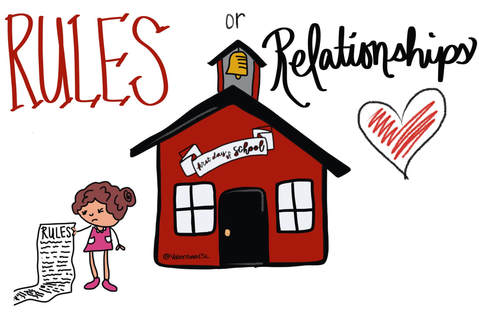

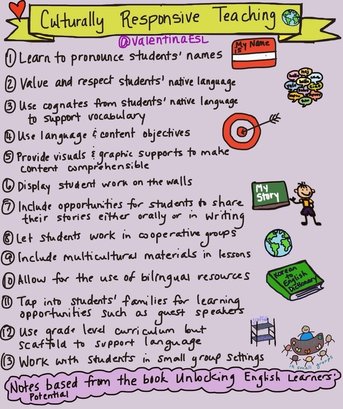
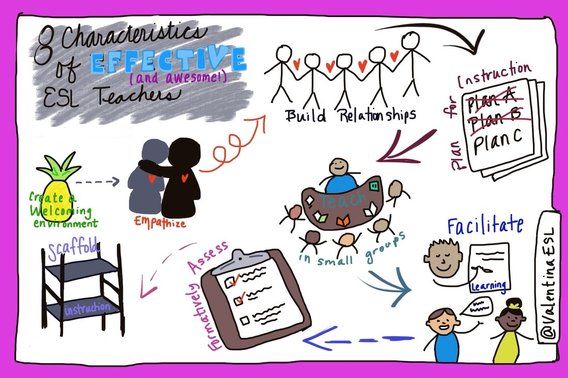
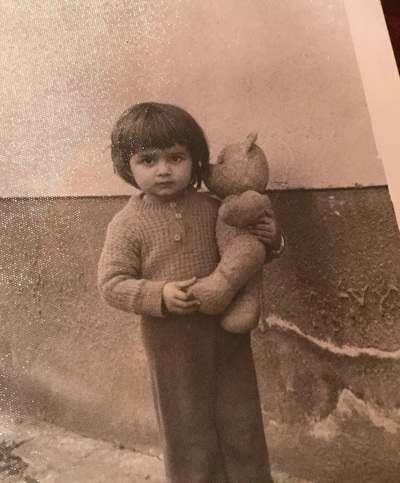

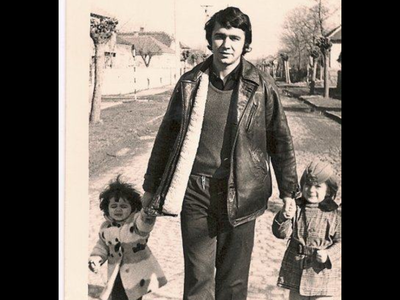
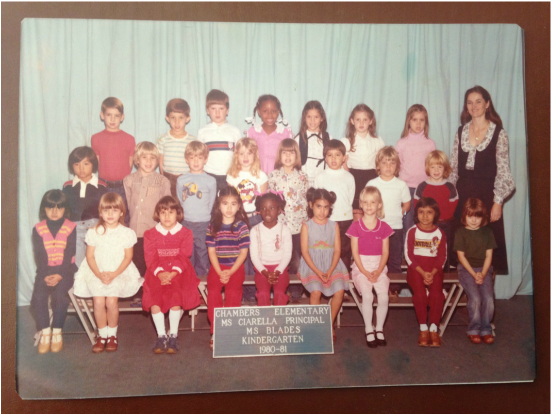
 RSS Feed
RSS Feed
